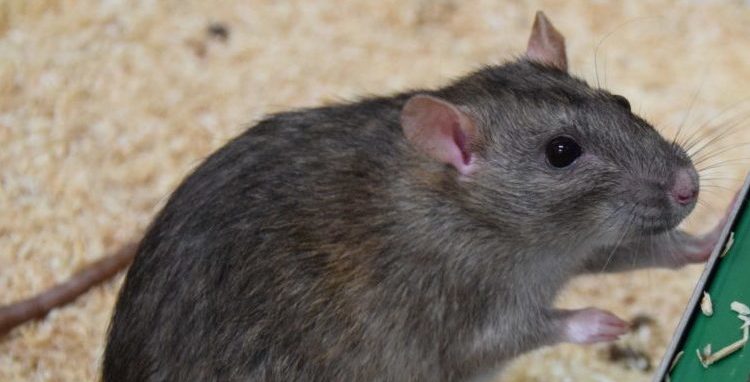The smell of cooperation

Rats can smell whether another rat is worth helping, according to new research involving the University of St Andrews.
Despite their bad reputation, rats are surprisingly social and are known to help one another, for example by sharing food. However, when they help another rat, they only help cooperative rats. But until now researchers were not sure how rats know whether another rat is cooperative.
In a new study published in Proceedings of the Royal Society (Biological Sciences), researchers from the Universities of Bern in Switzerland, Göttingen in Germany and St Andrews found that rats can actually smell whether another rat is helpful.
The researchers carried out a series of tests to study the importance of scent while making cooperative decisions. Test rats could help their partners by donating food to them.
For this, the test rats pulled a platform with a food reward into the reach of another rat. The rats were then provided either with the smell of a partner helping another partner in a different room, or with the smell of a rat that was not helping their partner.
Their research found that a rat smelling another rat that is being helpful increases cooperative behaviour in other rats. This is the first study to show that the smell of a cooperating individual is enough to trigger help.
Dr Nina Gerber of the Wildlife Science department of the University of Göttingen, who performed the experiments in Professor Michael Taborsky’s lab at the University of Bern, said: “Test rats increased their own helping behaviour when they were presented with the smell of a helpful rat. Remarkably, this holds true even though they did not experience helpful behaviour themselves.
“Further, such a smell of cooperation is dependent on the actual activity of helping and not connected to an individual. Thus, the same individual can release the scent of being helpful or not, depending on their actual cooperative performance.
“We thus conclude that in order to reciprocate help, potential odour cues might be even more important than directly witnessing another individual providing help – at least in rats.”
This series of studies provides evidence that rats use the scent produced by a cooperative act to decide whether to help a social partner. If other animals and humans use similar mechanisms is currently not known. In addition, the exact odour component produced when being helpful still needs to be determined.
Co-author Dr Manon Schweinfurth, of the School of Psychology and Neuroscience at the University of St Andrews, added: “Even though we humans do not seem to rely on communication through scent in the way rats do, our use of scent is underappreciated.
“Other studies have indicated that scent is key for finding appropriate partners, and that smelling certain chemicals can increase trust in interaction partners. Whether there is a ‘smell of cooperation’ also in humans, however, needs to be studied in the future.”
The paper, ‘The smell of cooperation: rats increase helpful behaviour when receiving odour cues of a conspecific performing a cooperative task’ by Nina Gerber, Manon K. Schweinfurth and Michael Taborsky is published in Proceedings of the Royal Society (Biological Sciences) and available online.
Please ensure that the paper’s DOI [doi.org/10.1098/rspb.2020.2327] is included in all online stories and social media posts and that Proceedings of the Royal Society (Biological Sciences) is credited as the source.
Issued by the University of St Andrews Communications Office.